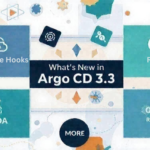
Software development is a complex field, and even experienced engineers can encounter bugs and issues from time to time. But what if there was a way to automate some of the troubleshooting process?
This is where SWE-agent comes in. SWE-agent is a new system that leverages the power of large language models (LLMs) like GPT-4 to tackle bugs and resolve issues found in real GitHub repositories.
State-of-the-Art Performance
On a standard test set known as SWE-bench, SWE-agent achieves an impressive 12.29% success rate in resolving issues. This puts it at the forefront of AI-powered software engineering tools.
The Secret Sauce: Agent-Computer Interface (ACI)
SWE-agent’s success hinges on a concept called the Agent-Computer Interface (ACI). ACI essentially provides a set of instructions and feedback mechanisms that allow the LLM to effectively navigate a software repository. These instructions include:
- Browsing the repository
- Viewing and editing code files
- Executing code
Just like how humans need clear instructions to perform tasks, LLMs benefit from a well-designed ACI. SWE-agent’s creators have incorporated features specifically helpful for LLMs working with code, such as:
- Lint checks: To ensure code edits are syntactically correct before submission.
- Customizable file viewer: Limited to displaying 100 lines at a time for better focus.
- Search functionality: To allow the LLM to find specific code sections.
- Informative messages: Feedback on whether a command produced any output.
Getting Started with SWE-agent
SWE-agent is open-source and available for anyone to experiment with. However, it does require some setup:
- Install Docker, then start Docker locally.
- Install Miniconda, then create the
swe-agentenvironment withconda env create -f environment.yml - Activate using
conda activate swe-agent. - Run
./setup.shto create theswe-agentdocker image. - Create a
keys.cfgfile at the root of this repository and fill in the following:
GITHUB_TOKEN: ‘GitHub Token Here (required)’
OPENAI_API_KEY: ‘OpenAI API Key Here if using OpenAI Model (optional)’
ANTHROPIC_API_KEY: ‘Anthropic API Key Here if using Anthropic Model (optional)’
TOGETHER_API_KEY: ‘Together API Key Here if using Together Model (optional)’
See the following links for tutorials on obtaining Anthropic, OpenAI, and Github tokens.
The included instructions detail two key functionalities:
- Inference: This is where SWE-agent analyzes a GitHub issue and attempts to fix it by generating a pull request.
- Evaluation: (Currently limited to SWE-bench issues) This step assesses whether the generated pull request actually resolves the reported issue.
Join the Community
The SWE-agent team is actively seeking contributions and welcomes:
- If you’d like to ask questions, learn about upcoming features, and participate in future development, join our Discord community!
- If you’d like to contribute to the codebase, we welcome issues and pull requests!
- If you’d like to see a post or tutorial about some topic, please let us know via an issue.
With its promising results and open-source nature, SWE-agent represents a significant step towards AI-powered software development. So, if you’re looking to streamline your coding workflow, SWE-agent is definitely worth exploring.













